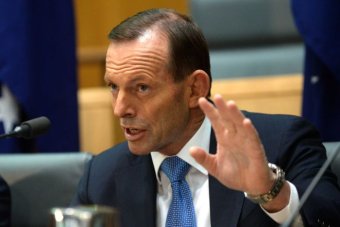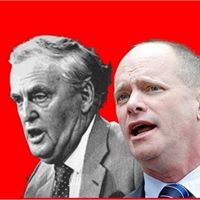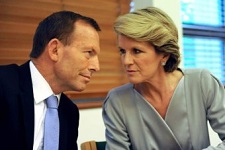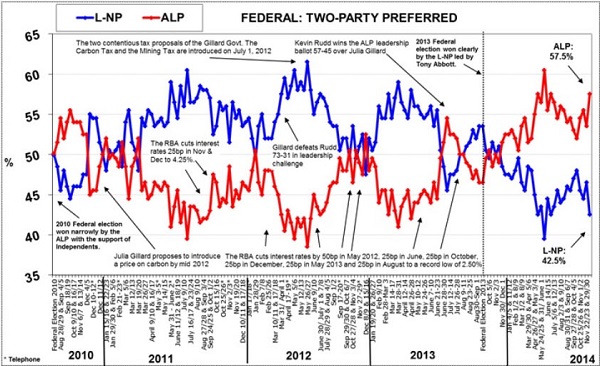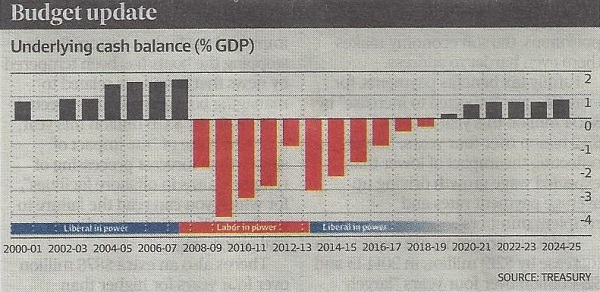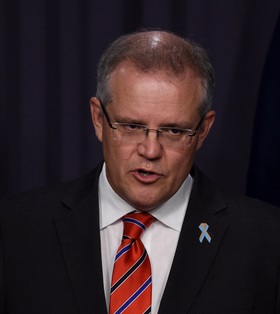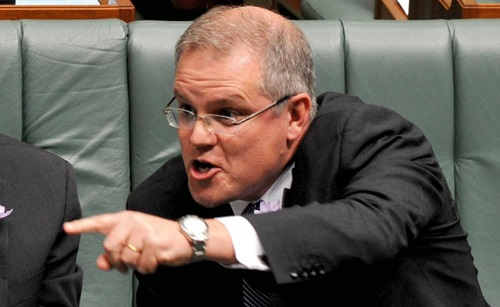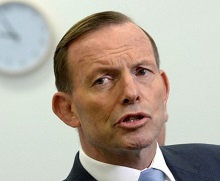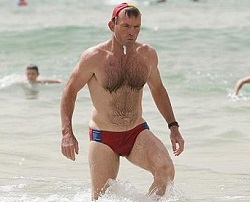
An open thread where, at your leisure, you can discuss anything you like, well, within reason and the Comments Policy. Include here news and views, plus any notable personal experiences from the week and the weekend.
For climate topics please use the most recent Climate clippings.
The gentleman in the image is Voltaire, who for a time graced the court of Frederick II of Prussia, known as Frederick the Great. King Fred loved to talk about the universe and everything at the end of a day’s work. He also used the salons of Berlin to get feedback in the development of public policy.
Fred would only talk in French; he regarded German as barbaric. Here we’ll use English.
The thread will be a stoush-free zone. The Comments Policy says:
The aim [of this site] is to provide a venue for people to contribute and to engage in a civil and respectful manner.
Here are a few bits and pieces that came to my attention last week.
1. Minister now has untrammelled power over asylum seekers
The event of the week must be the passage of the Migration and Maritime Powers Legislation Amendment (Resolving the Asylum Legacy Caseload) Bill 2014 which “has given the immigration minister, while he holds that job, unprecedented, unchallengeable, and secret powers to control the lives of asylum seekers.”
In effect under the bill the minister can do anything he chooses, he can ignore the UN convention and avoid legal challenge – the courts have been sidelined.
I hope to do a separate post early next week but cross bench senators have been suckered by the promise that children will be released from detention, something the minister already had the power to do.
2. Lies, barnacles and headless chooks
As part of the service, here’s Labor’s little book of Abbott lies. Thanks to John D for the link.
I meant to link last week to Peter Hartcher’s commentary on barnacle scraping.
Back in Gillard’s time journalists would find some back-bench malcontent and then quote him or her as a “Labor source”. Now Hartcher quotes some LNP Howard era survivors. For example:
“It would be a luxury for Abbott to be able to knock off some barnacles. It supposes that he has a ship. This government has no purpose, no sense of direction. The prime minister’s office is so busy managing everything they manage nothing. It’s Rudd all over again.”
One complaint is that a series of slogans is not a narrative. Another is that Peta Credlin controls everything, including Abbott. Abbott, however, seems happy in his bondage, pointing out that Credlin’s strategies knocked off Rudd and eventually delivered them power.
Lenore Taylor takes a look at the Government’s morning memoranda, the song sheets issued to LNP pollies so that they can answer questions from the media.
Mark Textor says that
“Economic anxiety is number one, two and three on the issue agenda.”
Textor said the government needed to find “really greater clarity around what is the core to the economic strategy. Is it to diversify the economy? Is it to rekindle parts of the mining and resources community? Is it to release growth through greater productivity? … As I said, those questions, from an economic perspective, still have to be answered.”
Negotiating individual budget items through the cross-bench maze makes the Government look like headless chooks. Well, at least unstable and short-term.
3. Christopher Pyne’s deregulation crusade starts now
One barnacle still there is Pyne’s higher education ‘reform’ bill. The Government lost the senate vote, but immediately submitted a new bill to the lower hose, virtually the same but stripped of some of the nasties. As far as I can see allowing the universities to charge what they like will increase the cost of degrees, especially in the G08 sandstone universities, and lead to a greater variety in standards. Also 20% of government university funding will be stripped out.
Staff and students oppose it, VCs, especially of the G08, like it. One vice-chancellor compared the universities peak body to a flesh-eating disease!
To me, it’s pretty much the end of university education as a public good, and a complete marketisation of the sector. Pyne’s right, it probably will happen eventually, given the basic conservatism of the cross bench mob.
4. Tax payers to subsidise training priests and other religious workers
Taxpayers would subsidise the training of priests and other religious workers at private colleges for the first time under the Abbott government’s proposed higher education reforms.
As well as deregulating university fees and cutting university funding by 20 per cent, the government’s proposed higher education package extends federal funding to students at private universities, TAFES and associate degree programs.
5. Secular school ‘chaplains’ get the chop
The Government is moving to purify and cleanse the school chaplaincy program by excluding the class who are actually qualified to do the job – secular welfare workers.
This is an idealogical stance you’d expect from the Tea Party.
Peter Sherlock, Vice-Chancellor at the University of Divinity, says:
if the program continues, it must continue to fund secular as well as religious chaplains. It is blatant discrimination to require all school chaplains at state schools to be auspiced by religious organisations.
